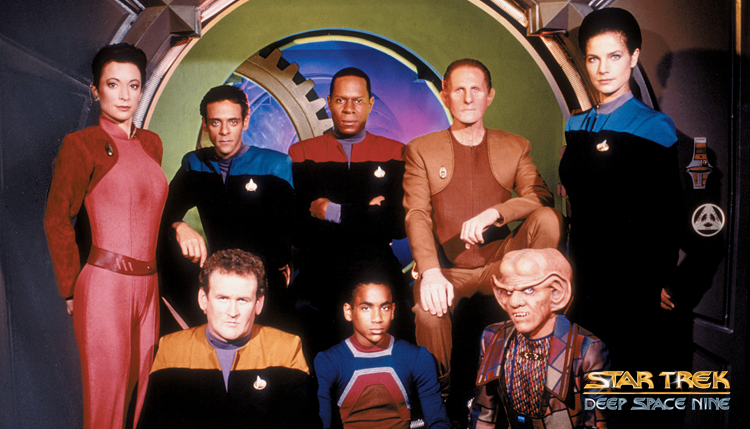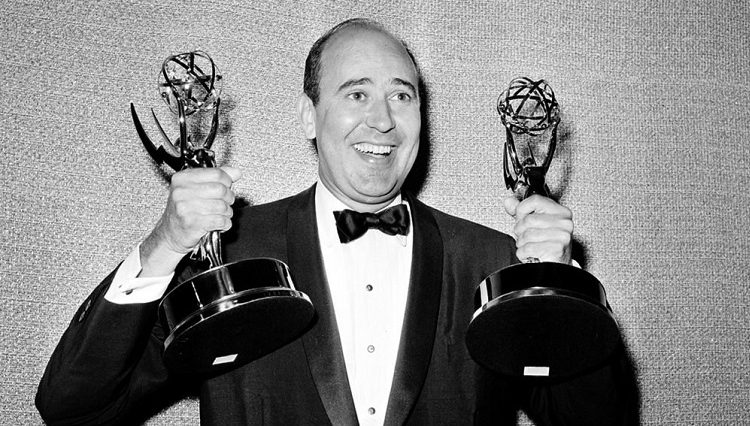
“What you call genocide, I call a day’s work.”
When Kira gets word that a passenger on a transport requires medical attention because he is suffering from something called Kalla-Nohra Syndrome, she assumes he was serving at an infamous Cardassian labor camp governed by the notorious “butcher,” Gul Darhe’el. She asks to see the passenger, all ready to give him a big, fat hug and cry on his shoulder. She is disgusted to find that the passenger is a Cardassian! She calls for security immediately, jumping to the assumption that this man was a soldier at the labor camp. Gallitep must be an analogy for Auschwitz, or Krakow, or some other such place that bulldozed over the bones of the tormented. A place Rod Serling would describe as, “a monument to a moment in time when some men decided to turn this … [corner of the galaxy] … into a graveyard.” If war brings out the worst in us, then occupation is a calming game of sadism for the victors. “Duet” is a game of hate; most of it pouring out of Kira’s eyes. She is determined to make this old Cardassian man pay for the crimes of his people.

I remember a conversation I had with a Facebook friend (who is no longer my friend) a while back and perhaps she was asking me rhetorically if “hate” was a good thing to have in your heart. I think she was looking for an excuse to hate someone and needed justification to make herself feel better. I told her, in no uncertain terms, hate is unhealthy, and I still believe it. Why would anyone want to feel hatred?

In “Duet,” Kira exhibits a mindless, irrational hate as though the body was only inches under the ground, visible enough to see the outline, and then a mild wind swept some of the dust away. It’s as if all she needed was the excuse to justify letting the dead rest a little easier, like Kirk in “The Conscience of the King.” The man, who calls himself Aamin Marritza, claims he is suffering from Pottrik Syndrome. Julian confirms it is, indeed, Kalla-Nohra Syndrome. Nana Vistor and guest star Harris Yulin are absolutely explosive as point and counterpoint. The Bajorans are ecstatic over the capture of this “war criminal,” but Sisko is dubious. Why would Marritza knowingly walk into their hands?

Marritza fesses up and admits that he was in the employ of Gul Darhe’el at Gallitep. He swears up and down he was just a simple public servant, a filing clerk. Gul Dukat wants Marritza released. Once again, the Bajorans and the Cardassians are creating problems for Sisko, and Kira is no help. She tips her hand when she tells Jadzia, “If he was at Gallitep, he’s guilty. They’re all guilty.” This is what is known as “confirmation bias,” basically believing what you want to believe, hiding or distorting any evidence to the contrary to support your personal narrative. When a file photo identifying Marritza as the legendary Gul Darhe’el is discovered, this is all Kira needs to exact vengeance upon him in any way she can, even as the story begins to unravel and the man’s true identity and purpose on Deep Space Nine are revealed. As it turns out, there were Cardassians who lived under a dusty blanket of regret all those years after the occupation. There were those Cardassians who wept, who cowered under their bunks, who covered their ears because they couldn’t bear to hear the screams. This is one of Deep Space Nine’s greatest episodes.
Twice a week, Star Trek Rewind explores the Star Trek universe. From Archer to Janeway, Kirk to Picard, and Georgiou to Sisko — boldly read what no one has read before!
For more insane Star Trek babble, check out my podcast (with co-host David B. Anderson), Ship to Ship: A Star Trek Podcast.



